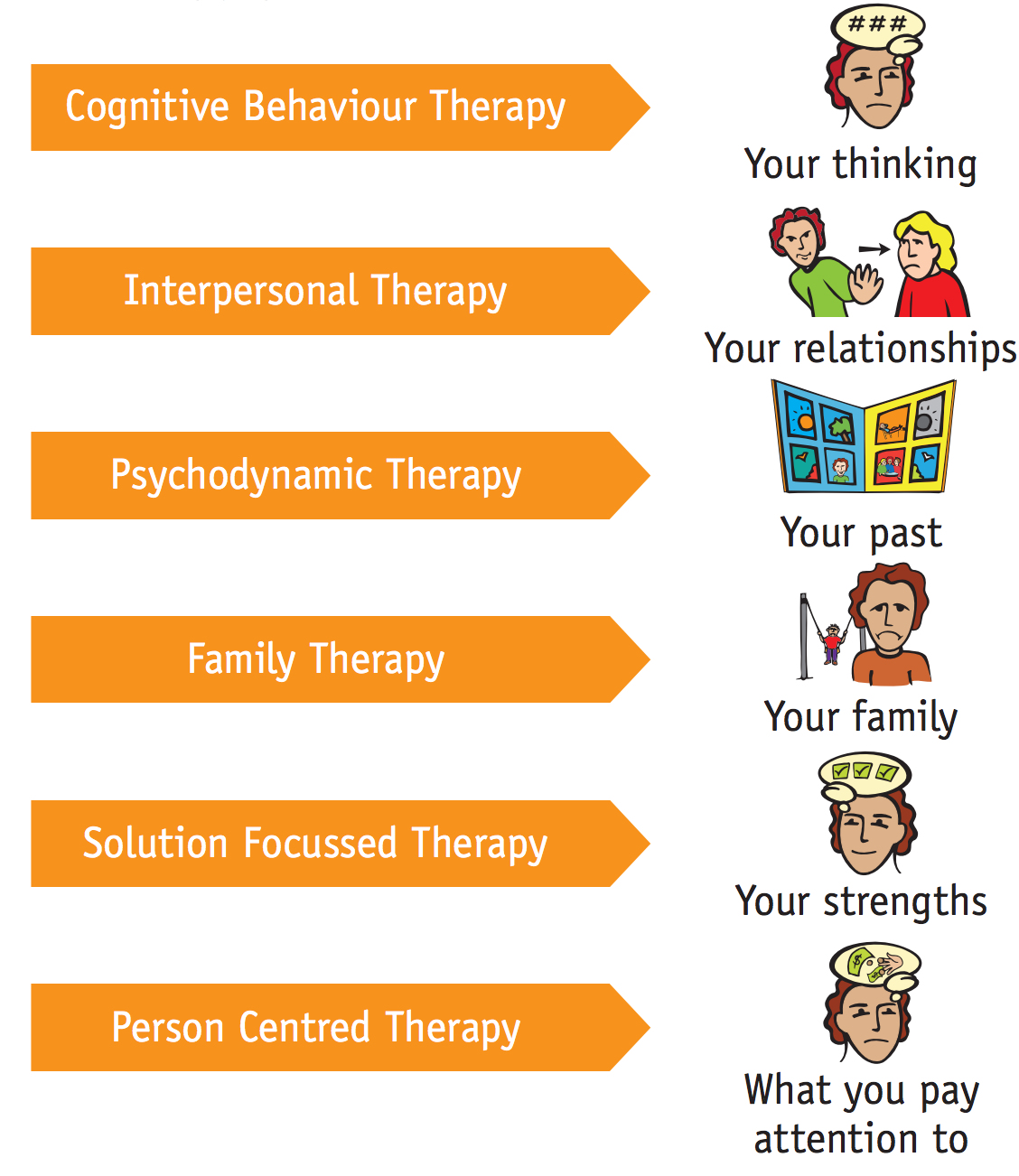Top Motivations Couples Choose couples counselling sessions to Heal
Wiki Article
Exploring the Benefits of Virtual Therapy in Modern Mental Health Care
The rise of virtual therapy notes a significant change in psychological healthcare. It uses enhanced availability, enabling people from diverse backgrounds to look for help without geographical constraints. Adaptability in organizing suits varying lifestyles, while the comfort of home can cultivate visibility. Nonetheless, the ramifications of these adjustments prolong past mere benefit. The evolving landscape of therapy elevates vital inquiries regarding its lasting impacts on patient involvement and treatment results.Boosted Ease of access for All
Traditional therapy frequently presents barriers such as geographical place and organizing conflicts, virtual therapy substantially improves availability for people seeking mental health and wellness assistance. By eliminating the requirement for physical traveling, virtual therapy allows clients from remote areas or those with wheelchair challenges to connect with certified professionals. This setting of therapy can get to underserved populations that might lack neighborhood psychological health resources, thus resolving differences in access to care. In addition, virtual platforms can deal with varied requirements, supplying services in multiple languages and suiting various cultural histories. Clients can involve with a more comprehensive series of specialists, providing them with choices that straighten with their particular demands and choices. This raised accessibility cultivates a much more inclusive environment, permitting people to seek assistance without the preconception often related to in-person gos to. Overall, virtual therapy represents a significant development in making mental healthcare more accessible to all.Flexibility in Organizing Procedure

As virtual therapy proceeds to get traction, its inherent adaptability in scheduling sessions verifies to be a considerable benefit for many people. Unlike standard in-person therapy, virtual therapy permits clients to select session times that finest fit their individual and specialist commitments. This adaptability fits those with demanding job routines, household commitments, or other dedications that can make attending physical appointments testing.
Clients can conveniently reschedule or readjust their sessions as needed, lowering the anxiety linked with inflexible appointment systems. The schedule of various time ports throughout the week, including evenings and weekend breaks, further improves access. This adaptability not only urges consistency in participation yet also promotes a greater dedication to the healing procedure. Ultimately, the versatility in organizing sessions stands for a transformative shift in psychological healthcare, equipping individuals to prioritize their health without sacrificing various other facets of their lives.
Comfort of a Familiar Setting
The comfort of an acquainted environment considerably boosts the efficiency of virtual therapy for numerous customers. Participating in therapy from the safety of their own homes allows individuals to feel more at simplicity, reducing stress and anxiety that may come with typical in-person sessions. This familiarity can help with open interaction, allowing clients to share their thoughts and sensations more easily.In addition, the visibility of individual items and the capacity to control their environments can add to a complacency and leisure. Clients typically report that remaining in a comfy space allows them to concentrate extra on the restorative process as opposed to the establishing itself.
Additionally, the casual nature of virtual sessions can assist dissolve barriers that might exist in a typical workplace atmosphere, promoting a much deeper link with specialists. Generally, the comfort of familiar environments plays a necessary duty in boosting the therapeutic experience and effectiveness for numerous individuals seeking psychological wellness assistance.
Broader Series Of Restorative Choices
A broader variety of therapeutic options appears with virtual therapy, allowing clients to access different methods that might not be feasible in standard setups. This adaptability makes it possible for individuals to check out diverse methods such as cognitive-behavioral therapy, mindfulness methods, art therapy, and even specialized interventions like trauma-informed care or dialectical habits therapy.Customers can choose from a broader range of specialists, consisting of those who specialize in particular niche locations or particular populations, boosting the probability of finding an ideal suit. Virtual systems frequently offer accessibility to group therapy sessions, assistance areas, and workshops that may be geographically unavailable otherwise.
This range empowers clients to take part in their healing process according to their one-of-a-kind choices and demands, potentially boosting motivation and dedication to therapy. Therefore, the landscape of mental healthcare comes to be much more comprehensive and versatile, providing to a wider range of private experiences and difficulties.
Lowered Stigma Surrounding Therapy
Accessing therapy with virtual systems adds to a significant reduction in the stigma typically associated with mental healthcare. By offering a discreet and exclusive environment, virtual therapy permits people to look for assistance without the worry of being judged or identified. This anonymity interest those who might or else wait to seek in-person therapy because of social assumptions bordering mental health.Moreover, as the occurrence of virtual therapy increases, it normalizes the discussion around mental wellness, making it a more appropriate component of daily life. Individuals commonly feel more comfortable reviewing their experiences on the internet, advertising openness and decreasing sensations of seclusion. The ease of access of these services likewise encourages a wider group to involve with mental wellness resources, cultivating a society of support instead of pity. Inevitably, the rise of virtual therapy plays an important duty in reshaping attitudes towards looking for assistance, adding to a more accepting culture relating to psychological health challenges.
Cost-Effectiveness and Affordability

Lowered Session Expenses
Lots of individuals looking for mental health support locate that virtual therapy substantially reduces session costs compared to traditional in-person alternatives. The elimination of travel expenditures and pause job typically adds to general savings. In addition, numerous virtual therapists use competitive prices due to reduced overhead prices related to maintaining a physical workplace. This shift in expenditure permits clients to gain access to quality psychological health and wellness solutions without the monetary stress that may feature traditional therapy. For numerous, this price allows extra constant sessions, which can improve therapy outcomes. Therefore, virtual therapy not only equalizes accessibility to psychological health and wellness care yet also provides a sustainable monetary version that lines up with clients' budget plans, making psychological health assistance extra achievable for a larger target market.Broadened Gain Access To Choices
While conventional therapy commonly provides logistical obstacles, virtual therapy substantially increases access alternatives for individuals seeking psychological healthcare. By eliminating the demand for traveling and allowing adaptable scheduling, virtual therapy fits varied lifestyles and dedications. This access is especially useful for those in remote locations or with wheelchair challenges. Additionally, the cost-effectiveness of virtual therapy decreases monetary strain, making psychological health services more reachable. Lots of platforms use tiered prices or sliding range costs, advertising cost. Insurance policy firms progressively recognize virtual therapy, more enhancing its monetary access. In general, virtual therapy not just broadens the scope of who can get treatment yet additionally addresses economic barriers, making mental wellness assistance extra inclusive and attainable for all.Improved Continuity of Treatment
Improved continuity of care arises as a substantial benefit of virtual therapy in contemporary mental healthcare. This technique allows people to keep regular communication with their specialists, no matter geographical barriers or organizing conflicts. relationship therapy. The versatility of virtual sessions cultivates regular check-ins, which are essential for checking development and adjusting therapy intends as necessaryAdditionally, digital health and wellness documents and telehealth systems facilitate smooth info sharing amongst care companies. This interconnectedness ensures that all professionals associated with an individual's treatment are updated on therapy developments, bring about more collaborated and reliable interventions.
Patients typically experience lowered anxiousness and boosted involvement because of the benefit of accessing therapy from acquainted settings. Such access boosts adherence to treatment regimens, eventually improving end results - relationship therapy. To summarize, virtual therapy not just bridges voids in mental health solutions but additionally fortifies the continuity of treatment, an important component of successful therapeutic virtual therapy connections
Regularly Asked Inquiries
Exactly How Does Virtual Therapy Ensure Discretion and Privacy for Clients?
The existing inquiry addresses the steps virtual therapy utilizes to shield client privacy. Utilizing encrypted systems, safe logins, and compliance with guidelines like HIPAA, virtual therapy guarantees that delicate info continues to be private and inaccessible to unapproved people.Can I Switch Over Therapists Quickly in Virtual Therapy?
Changing specialists in virtual therapy is normally simple. Customers can interact their desire for a modification through the system, permitting versatility in locating a much better suit without the logistical difficulties of in-person appointments.What Technology Do I Required for Virtual Therapy Procedure?
To take part in virtual therapy sessions, a private normally requires a dependable net link, a computer or smart device with a video camera and microphone, and accessibility to a safe video clip conferencing system specified by their specialist.
Are Virtual Therapy Sessions as Effective as In-Person Procedure?
Recent research studies show that virtual therapy sessions can be equally effective as in-person sessions, relying on the individual's preferences and circumstances. Variables such as convenience and ease of access may improve the general restorative experience for some clients.What Should I Do if I Experience Technical Issues During a Session?
If technological problems occur during a session, one ought to calmly interact the issue to the therapist, attempt to reconnect, or button to a backup technique. Persistence and adaptability are important in handling these disruptions.Report this wiki page